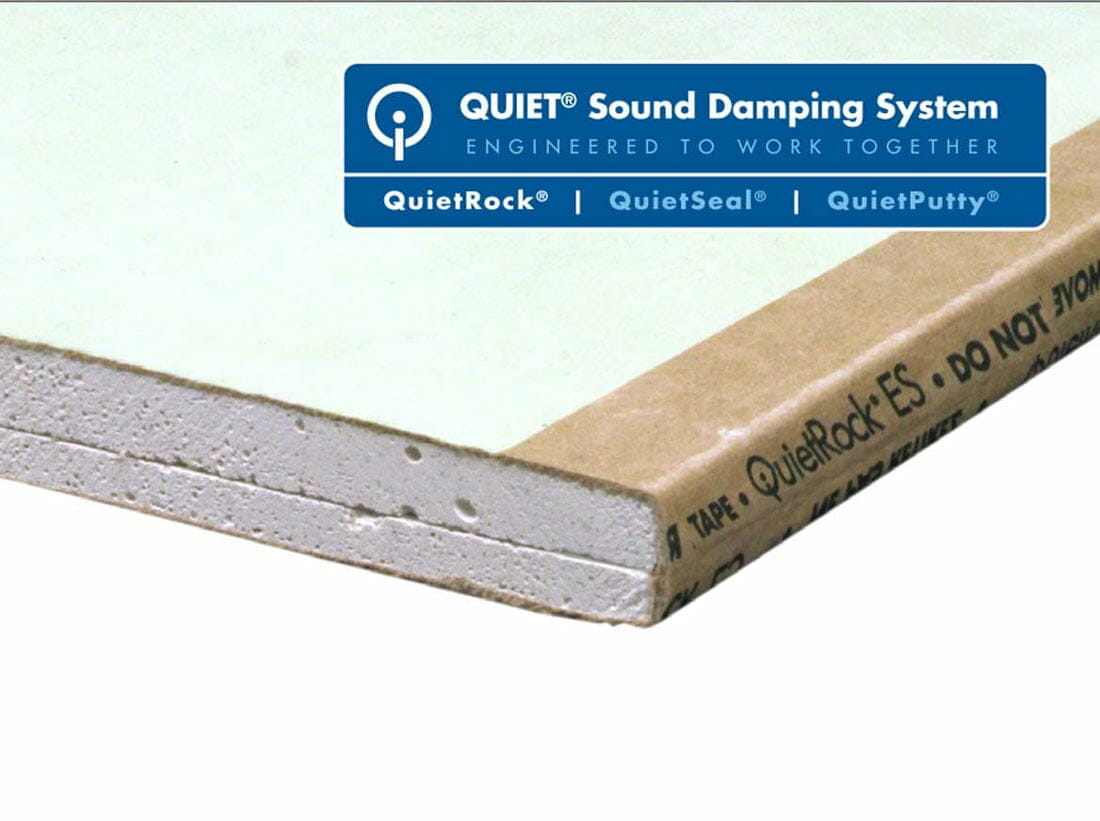Soundproof drywall costs can vary depending on several factors. If you decide to install it yourself, considering how close the supplier is to your project location is essential. Moreover, it’s important to pay close attention to the quality of the product and the trustworthiness of the retailer you’re purchasing from.
The cost of soundproof drywall can range between $8 to $120. Different manufacturers have various pricing schemes based on the quality and use of their products.
This article will show you whether or not the cost is worth the benefits of soundproof drywall. We will also explain what makes the drywall effective – it is all about the technology.
What we cover
ToggleSoundproof drywall: are the benefits worth the cost?
Choosing soundproof drywall to install will depend on your budget and the specific needs of your project. The commodity is not the only aspect where you spend money; you must also consider the cost of labor. There is also the length of time it will take to install, the specific design you want, and how big the project is to consider.
If you have previously installed soundproof drywall, it is crucial to find out why it is not working. Installing another means the first one may have failed or does not provide the noise reduction level you desire.
Bear in mind that installing a drywall partition twice costs more than doing it once and getting it right.
Considerations
A double layer of typical drywall can muffle noise to an extent. But this method works only if the noise level is low; using up to two or more layers successfully reduces the noise level. However, when the noise level is high, using layers of regular drywall may not be effective.
It is one thing to install soundproof drywall and another to correctly install it. If it is not correctly done, you may spend more time correcting it when you discover the mistake. But when done right, one layer of quality soundproof drywall performs better than several layers of regular drywall in reducing noise.
Floor space
When you know the noise control requirements or specific noise modifications you need, you can narrow your search for soundproof drywall and pick it according to your budget. If you have to use multiple regular drywall layers, it may work for moderate regulations. However, it may also consume floor space, reducing what is available for use, even though it may be more cost-effective.
Typical soundproof drywall may be thin enough to leave space in small rooms without compromising noise reduction. If you are considering creating smaller rooms from a large space and need to reduce the noise level from one room to another, soundproof drywall is the best option, both in space conservation and costs.
Reliability
While you may want to save costs by using regular drywall, which is cheaper, and fixing the drywall yourself, it may not be reliable in the long run. Over time, you may have to repair the wall constantly.
As mentioned before, using several drywall layers consumes floor space and may not be effective in noise reduction. Also, doing the installation yourself may require using a viscous compound, and it usually needs skilled hands to avoid mistakes.
How does a soundproof drywall work?

Different manufacturers use unique technologies to produce soundproof drywall. Therefore, the intricate details of how each technology works may differ and take too long to explain because of their complexities. However, let us look at the basic workings of a typical one.
We all know that sound waves move through the air, but we may not be aware that they can also move through certain liquid and solid materials. They move quickly through some materials but not so well through others. That is why it is easier to hear sound in some rooms than in others.
Energy conversion
The noise moving from one room or area into another works by energy. Sound waves typically contain energy that enables them to move the way they do. Walls cannot dampen noise, no matter how well they are constructed. Consider how an underground bunker works. It takes a few feet of reinforced concrete and an immensely thick door to muffle the sound of a mower.
Soundproof drywall uses a different method to achieve its goal; it converts the energy in the sound waves into another type of energy. In simple terms, it converts sound energy to thermal or heat energy.
When sound vibrates the polymer between the gypsum boards, it causes friction between the polymer and sound, generating energy. Then, the energy is converted to thermal energy or heat. So, instead of the drywall shaking and transferring noise from one room to another, it produces heat.
Beyond soundproof drywall: factors that affect results
Getting suitable soundproof drywall is just one step in the process of dampening noise. While considering the drywall cost, it is also crucial to check how the house design affects the results of installing it.
Consider the technology or materials used for sound muffling during construction. Typically, contractors place such materials or use technology between the building and framing structure to prevent excessive reverberations between rooms. Also, consider the quality of the wood or metal used during construction and its size.
The openings in the ceiling and walls for light fixtures and outlets also play a vital role in sound production. The same is true for the air cavity size in the same locations. These are some factors that affect how well soundproof drywall performs and how much you spend on a project.
Conclusion
Soundproof drywall can be affordable if you have minimal and simple construction needs. Also, if you choose single sheets, you may save costs. The drywall price may rise if you need multiple sheets, and different manufacturers have varying prices. The quality and type of drywall typically affect the price.













